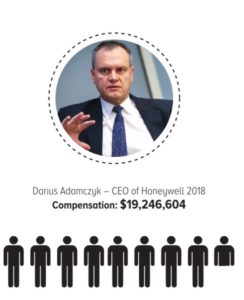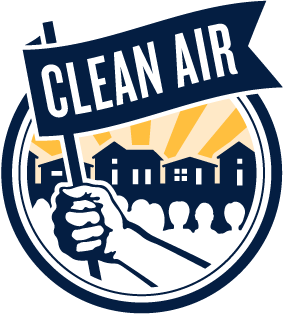The Future of Tonawanda Coke
The Tonawanda Coke Corporation operated a coke manufacturing facility at 3875 River Road Tonawanda, New York since the late 1970’s. For decades, Tonawanda Coke caused tremendous quality of life issues in the community including air and water pollution, workers’ safety and health issues, employee fatalities, and now a legacy of contamination. Tonawanda Coke purchased the site from Honeywell, formally Allied Chemical, in the late 70’s, Honeywell is responsible for a portion of legacy waste on this site.
In New York State, there are two major pathways to remediate contaminated sites, the New York State Brownfields program or the Superfund Program. There are many distinctions between these programs. One major difference is who pays for cleanup.
The NYS Brownfields process allows developers to voluntarily initiate a plan for remediation, and be rewarded with tax credits to lessen the burden of cost.
The Federal Superfund Program; a robust, enforcement program designed to remediate large, extremely toxic sites. Under this designation, the Environmental Protection Agency has the legal authority to begin remediation and pay for the cleanup by recovering costs through the responsibly party.
The conflict over which designation arose when Honeywell hired e3communications earlier this year for $3,750 per month and began reaching out to community members, environmental organizations, and elected officials to push for the Brownfield designation. See the recent article in the Tonawanda Bee.
 According to Channel 2 News, Rep. Brian Higgins, D-Buffalo, said his office has had conversations with Honeywell representatives about the future of the property. Over the past two years, Higgins has become one of the top recipients of campaign donations from a political action committee affiliated with Honeywell, which had been loaning Tonawanda Coke money.
According to Channel 2 News, Rep. Brian Higgins, D-Buffalo, said his office has had conversations with Honeywell representatives about the future of the property. Over the past two years, Higgins has become one of the top recipients of campaign donations from a political action committee affiliated with Honeywell, which had been loaning Tonawanda Coke money.
In late April, Higgins told News 4 Investigates that he supported a brownfield designation for the Tonawanda Coke property. But a week later, Higgins changed his position. Watch the story here.
“This is not even a close call,” said Judith Enck former Regional Administrator of the US Environmental Protection Agency making the case for a Superfund designation, to The Buffalo News on May 31, 2019.
In a May 31st statement to The Buffalo News, John Morris, Honeywell’s Global Remediation Director, went on record to say “The federal Superfund program is a more robust legal program. We don’t take issue with those people who say, ‘Hey, that’s a much stronger program.” Honeywell is responsible for large portion of legacy waste at the Tonawanda Coke site, operating the company until the late 70’s under their predecessor Allied Chemical.
Honeywell has a history of conflict with Tonawanda Coke regarding the company’s responsibility for cleanup. In 2015, Tonawanda Coke sued Honeywell for portion of legacy cleanup costs due to conditions of their purchase agreement. Then, in 2017, Honeywell loaned Tonawanda Coke nearly 8M to go towards criminal fines and remediation costs. Tonawanda Coke offered the mortgage of the property as collateral.
Honeywell’s Track Record and Profitability
Nationally, Honeywell has a long list of environmental, safety and health, and labor violations. Based in New Jersey, Honeywell is multinational conglomerate company that makes a variety products, provides engineering services and aerospace systems for private consumers to major corporations and governments.
Since 2000, at least 67 environmental enforcement actions have been brought against Honeywell, resulting in over $100 Million in fines. Honeywell has a criminal track record of violating the Resource Conservation and Recovery Act (RCRA), including a felony offense for knowingly storing hazardous waste without a permit, putting employees and the community at risk of exposure to radioactive and hazardous materials in Benton, Illinois.
Honeywell has also been penalized over $55M for over 50 labor safety and health violations. In Honeywell’s Baton Rouge plant, Honeywell was found guilty in criminal court in the death of 32 year old worker Delvin Henry after he opened a mislabeled cylinder and suffered third degree burns. He died the next day.
Despite the millions of dollars in penalties and lawsuits, Honeywell still remains highly profitable. According to the Honeywell 2019 Proxy Statement and Notice of Annual Meeting of Shareholders, Darius Adamczyk, Honeywell’s CEO, total compensation was $19,246,604 in 2018. In 2018, Honeywell ranked 77th in the Fortune 500, making it one of the wealthiest corporations in the world.
 It would take the average worker in Erie County 8.5 lifetimes to earn what CEO Adamczyk earns in one year.
It would take the average worker in Erie County 8.5 lifetimes to earn what CEO Adamczyk earns in one year.
In addition to executive compensation, Honeywell also spends a tremendous amount of money on lobby firms and political contributions. According to the Center for Responsive Politics, Honeywell spent over $6M through Political Action Committees (PACs) to political candidates in the 2018 election, including at least $159,923 to candidates in New York State. Honeywell International routinely spends close to $7 million each year on federal lobbying efforts.
The Current State of the Tonawanda Coke Site
In the fall of 2018, the Tonawanda Coke found guilty of violating their criminal probation related to a 2014 criminal sentence. Shortly after this verdict, the company’s leadership filed for Chapter 11 bankruptcy to reorganize their assets. The company ceased operations at the facility on October 14, 2018 and permanently vacated the site.
Currently, the US Environmental Protection Agency is using its short-term authority under the Federal Superfund Program to stabilize the site and conduct initial assessments. A long-term remedial response is needed to ensure our health of residents living in the surrounding neighborhoods.
To learn more or get involved in this campaign, contact Rebecca at 852-3813 or at Rebecca@cacwny.org.
